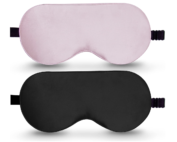Welcome to our page dedicated to the restorative power of sleep and the fascinating world of biohacks to optimize your sleep and improve your overall health. Sleep is an essential pillar of our well-being, playing a vital role in maintaining physical, mental, and emotional health.
In today’s fast-paced world, many individuals struggle with sleep-related challenges, such as insomnia, poor sleep quality, or irregular sleep patterns. These issues can have a profound impact on our daily lives, affecting productivity, mood, cognitive function, and even long-term health outcomes.
Biohacking offers innovative techniques, lifestyle adjustments, and practices to optimize the quality and quantity of your sleep. By incorporating biohacks into your bedtime routine, you can potentially enhance sleep efficiency, experience deeper rest, and wake up feeling refreshed and revitalized.
In this comprehensive guide, we will explore various biohacks that have shown promising results in improving sleep quality and promoting overall health. From establishing a sleep-friendly environment and optimizing sleep hygiene to exploring relaxation techniques, mindfulness practices, and natural supplements, we will provide you with evidence-based information and practical tips to empower you on your journey towards better sleep.
It’s important to remember that everyone’s sleep needs and challenges are unique, and what works for one person may not work for another. We recommend considering your individual circumstances, consulting with healthcare professionals, and personalizing biohacking strategies to suit your specific needs.
Get ready to unlock the potential of biohacks and discover effective ways to optimize your sleep, improve your health, and experience the transformative benefits of quality rest. Together, let’s embark on a journey towards a rejuvenated mind, body, and spirit through the power of sleep.
Products that may help improve sleep:











